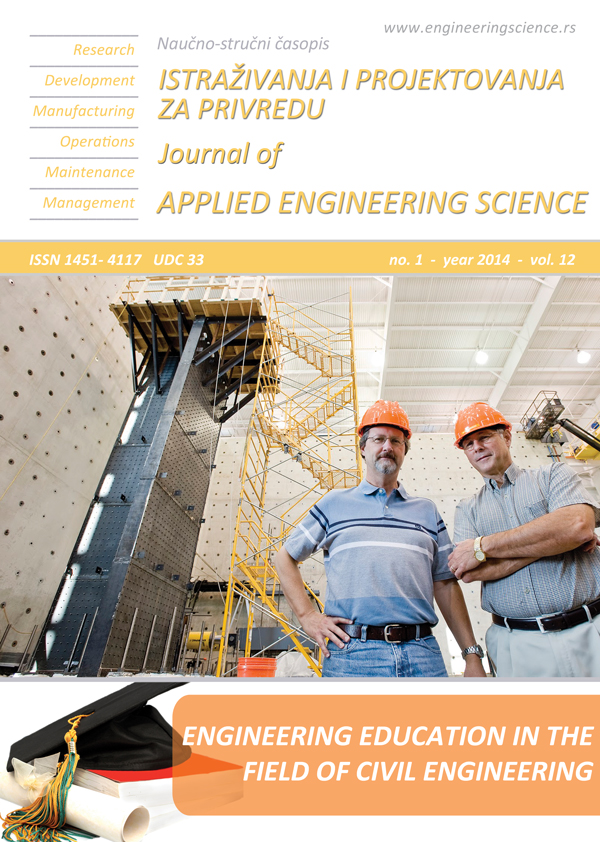ENGINEERING EDUCATION IN THE FIELD OF CIVIL ENGINEERING
Abstract
Economic growth is of a crucial importance to the prosperity of a society and its members and such growth is based on a good quality and competent labour. Educated and skilled human resources are one of the key factors to influence the positioning of a national economy in the international community. A properly regulated educational system and availability of education, as well as the "learning society" culture appear to be a generator of economic, cultural and general social progress.
References
According to professor Zeljko Mrnjavac: Does Labour Disappear in the Knowledge Based Economy?
Dusan M. Savicevic, Comparative androgagy, Institute for Pedagogy and Andragogy, Faculty of Philosophy, University of Belgrade, Belgrade 2003, p.25
Gordana Ilic Gasmi, EU reforms – institutional aspects, IGP Prometej Belgrade 2004, pr. 14
Kristinka Ovesni, Education of Adult Educators, (European Experiences). Belgrade: Institute for Pedagogy and Andragogy, Faculty of Philosophy, University of Belgrade, Belgrade 2001, p.13
Marc Luyckx Ghisy, Win-Win Strategy for the European Union in the Knowledge Society, Quantum 21 net. 2007, p. 1
Presidency Conclusions, Lisbon European Council, 23 and 24 March 2000
Radivoje Kulic - Miomir Despotovic, Introduction to Andragogy, Zenica, Dom stampe 2005, p.29
Sasa Milic Strategy of the adult interactive learning, Actual problems of adult educaton, Scientific Symposiums, Book 82, Montenegrin Academy of Sciences and Arts 2007, p.90
The Treaty of Lisbon amending the Treaty on European Union and Treaty establishing the European Community 2007/C 306/01
www.zzzcg.org

